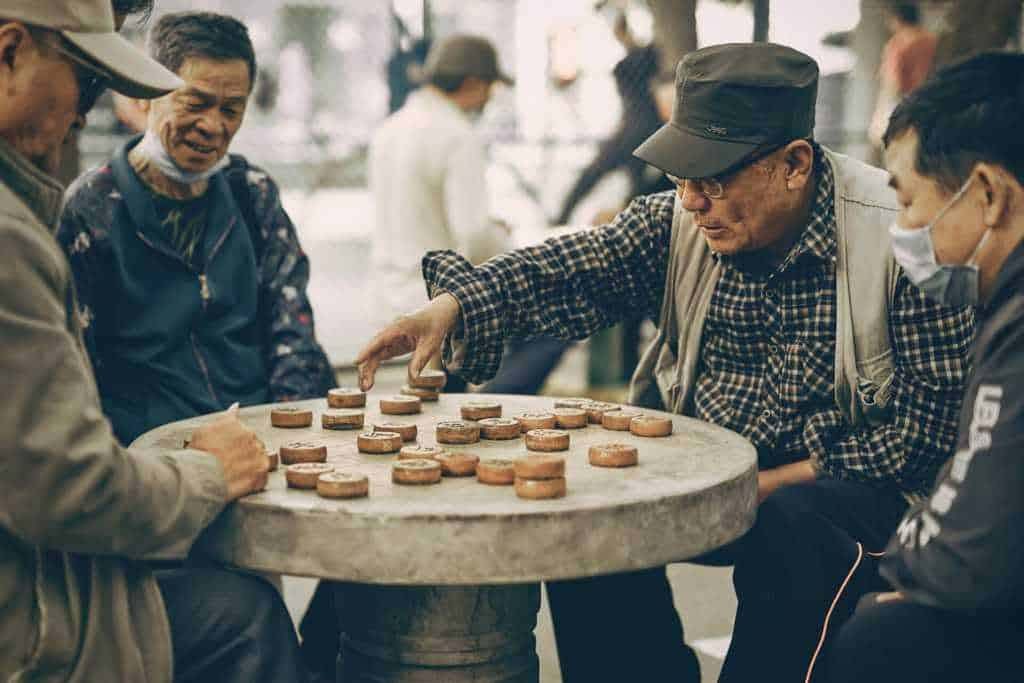Mental wellbeing was practically a taboo subject some decades ago. Back then, stigma prevented people from speaking aloud about depression and other mental health issues.
With the rise of the yoga culture, having a mindfulness practice and looking after your mental wellbeing has become much more common. Following a "guru," having a life coach, or seeing a therapist is seen as the norm these days--especially in bigger cities and among the younger generations. Maybe this is thanks to trends over in Hollywood where A-list stars have their psychologists on speed dial. Or perhaps it's thanks to the rise of coaches like Tony Robbins and an increased interest in personal development and psychology at large. Even in large corporations, company culture and how it affects mental wellbeing has become a topic of consideration.
As Covid-19 created a need for social distancing, mental wellness has received even more attention. On Google, trending search terms include:
- How can I improve my mental health during the Coronavirus pandemic?
- How to avoid feeling low during the coronavirus disease (Covid-19) outbreak?
- What are the psychological effects on people who are at risk for a severe course of the Coronavirus disease?
It's no secret that isolation, an economic downturn, and fear for your physical wellbeing can contribute to depression, or merely put you in a bad mood. So what can you do to protect your mental wellbeing? What can you do to stay as happy as possible--both now and when the pandemic is over? Read on to find out.
1. Socialise
Lockdown might have forced you to embrace social distancing, but there are ways to socialise still. And it's essential for your wellbeing. One study in Ireland found that people undergoing mental health difficulties felt significantly better when partaking in social activities.
Another study found that face-to-face socialising can halve your chances of depression by up to 50%.
In areas known as "Blue Zones," where people, on average, live longer than in other parts of the world, socialising forms part of everyday life. Socialising is one of the pillars believed to lead to longevity and studies back this up.
Here's how you can socialise and keep social distancing:
- Meet people outside for walks--even in winter a good country walk is lovely if you dress warmly and bring something warm to drink
- Ice skating--so long as you don't need to hold onto anyone, you can keep your distance
- Have digital coffees and teas--Zoom, Skype, WhatsApp, Facetime, Facebook and so forth all offer the option of doing video calls
- Meet your friends outside--have a coffee in the garden (consider heating lamps in winter) or while going for a stroll in the park
- Go geocaching
- Go on mini-road trips with friends that end in a picnic, or just chatting with your windows rolled down
- Turn to old-fashioned letter writing--that surge of happiness seeing a letter in the mail is priceless!
- Create an online book club, knitting club, carpentry club, cooking club, or whatever club takes your fancy!
- Create online events with friends, such as quiz nights
- Play a game of chess over a video call--have one board each
- Try online games you can play with friends
- Play games outside with friends, such as boule or croquet--sanitise equipment before touching it
- Use an online app for a call that enables screen share, such as Zoom, or Skype, and watch a movie on Netflix, or BBC iPlayer together
- Do video calls with friends while doing things around the house, such as cooking, painting, or knitting
- Join online classes, such as taking an online course in standup comedy, where the teaching is live
You can meet new people online too. Meetup has started offering online meetups, as opposed to their regular offline ones. Facebook provides a wide variety of different groups for people looking to socialise--look to see what's available in your area. And even dating apps like Bumble have started offering things like Bumble BFF, which is for people looking to make new friends.
There are lots of things happening online, from courses being taken to new apps being created to cater to people's need to be social during these times. A quick search on Google will help you find something that suits you.
If social distancing isn't an issue for you, Meetup, InterNations, A Small World, and private membership clubs all offer social events. Attending courses, networking events, gyms, workshops and so forth in your area is also an idea. And if you have become a remote worker, there are plenty of co-working spaces available.
2. Do something to help others
Volunteering has been proven to contribute to longevity, lower blood pressure, and happiness so long as you have altruistic intentions.
Even if social distancing is forcing you to rethink how you help others, donating money to others has proven to make you feel good. However, to reap the most significant benefits, partaking in something that allows you to be social is considered best. It can also help you by providing you with purpose and meaning (see more below).
Ideas for volunteering:
- Create social distancing experiences for the elderly
- Create a neighbourhood brigade, where you help one another out
- Cook for a soup kitchen
- Create food parcels--maybe together with a friend, or partner
- Sew clothes
- Mentor students, new moms and dads, business owners - you name it!
- Start a theatre troupe or band that performs for free
- Join volunteering organisations that speak to you
- Set up some new clubs in your neighbourhood
Remember that many things can be done while keeping your distance, or while dressed in protective gear. You can also do a lot of stuff online.
3. Get a sense of your bearings
With Covid, a lot of things have changed. You may have been forced to homeschool your children. You might have lost your job. Your social life has likely been impacted.
Life as you know it has changed.
When people lose orientation, they often get depressed. My coach, Marc Cooper-DiFrancia, always says losing orientation is one of the most challenging things we can face. This is because when you don't know where you are going, you feel lost. You may even lose your sense of purpose. It's like spinning around in circles with no aim.
So, get your bearings. Look at where you are at now. Look at what you'd like to create and list the steps to get there. If those steps feel too big--break them down into smaller steps.
4. Find a purpose
Do you have something that makes you jump out of bed in the morning? If not, it's time to find something. Even if you're no longer working, or forced to social distance, there are things you can create to make you happy.
- Consider projects in the home, such as redecorating
- Start a neighbourhood organisation that helps others - be it by baking pies, ensuring the elderly aren't lonely or helping out in people's gardens
- Start a business
- Start selling something on Etsy
- Start a blog
- Create a social distancing socialising club, such as a walking club, or online book club
5. Take care of yourself
If you do not get the nutrients you need, the exercise you need, the fresh air you need, or the sleep you need, you will feel down. Your brain becomes depleted of the chemicals it needs to feel happy if your body is not taken care of.
For example, tryptophan is found in various foods such as milk, almonds, poultry, chocolate, oats, and tart cherries. It acts as a precursor for both serotonin (which helps control your mood) and melatonin (which helps make you sleep). In fact, two cups of tart cherry juice per day may increase your amount of sleep by up to 84 minutes! Taking tryptophan as a supplement, on the other hand, may not be safe.
Consuming foods containing tryptophan and its effect on our bodies is just one example of how diet affects us. Eating a whole foods diet rich in vegetables is generally considered the best diet.
Exercise, similarly, helps improve our mood and likely decreases the chances for depression as well as helps cure it. Cardio may also give you something known as "runner's high." This is because endorphins are released after you exercise.
Sleep is likewise needed to regulate your mood. You also need to spend time outside as you need to be exposed to daylight for your body to get enough vitamin D. Vitamin D, in turn, is thought to be linked to mood. And simply asking yourself if you feel better after a brisk walk outdoors should also answer the question of whether spending time outside improves your mood, or not!
Spending time in nature has also been linked to health and mood benefits.
In short, eat well, exercise, spend time in nature (daily if possible), and go to bed at the same hour every day, ensuring you get enough sleep.
Healthy habits you can establish to incorporate the above easily:
- Join a local group that partakes in outdoor exercising, such as biking, jogging, golfing, riding, or walking (or start one with your friends)
- Get an app like Noom or meal planner like the Blue Zones one that helps you eat well without fuss
- Go for weekly or bi-weekly country walks
- Bike, or walk, to the shops ever so often
- Shop outdoors at the farmer's market
- Take a brisk ten to fifteen-minute walk around the block after lunch and dinner
- Get an allotment or garden and do gardening
- Get a dog that needs walking
- Get an app to track your sleeping patterns and adopt a bedtime routine
In closing
All the above will help improve your mood, prevent and cure depression, and protect your mental wellbeing at large.
You might also want to try incorporating breathing exercises and meditation into your everyday life. You can find guided meditations on YouTube, and there are also apps for it. A quick look on Google will help you find simple breathing exercises.
Reading books that can help you transform your outlooks another excellent idea. Try titles such as:
- "The Four Agreements" by Don Miguel Ruiz
- "You Are a Badass" by Jen Sincero,
- "Stop Thinking, Start Living" by Richard Carlson
Remember to focus on what is working in your life. You need to learn to focus your energy on the good stuff in your life, no matter how little there seems to be of it at the moment. And if you're having a particularly bad day and can't yet control your thoughts--distract yourself. Go for a job, or very brisk walk, followed by a hot and cold shower (to shock your body, but don't do it if you have a weak heart), a nice dinner and watching a comedy to raise your spirits.
Engaging in simple activities like cooking, gardening, carpentry, sewing, or painting can also help distract your mind from negative thoughts.
Lastly, if you think you have underlying medical conditions that are causing mood swings, contact your GP, or a specialist. If you need more mental support than this article can deliver, get a coach, therapist, or psychologist. This, far from being a sign of weakness, is a sign that you take responsibility for your mental wellbeing and do right by yourself and those around you.
Jess Ward told us: "Just like you would go to the gym to keep physically fit, it's ok to go and seek professional help for your mental wellbeing too. No matter how old you are or where you're at in your journey - you deserve help and it is accessible to you. Seeking help shows a sign of strength, not weakness. Give yourself permission to slow down, seek the guidance and support you deserve and please, always know, you're never alone."
What are the mental health helplines for the Coronavirus and mental health in general? You can call 111 for urgent help from the NHS. Visit the NHS website for a list of their helplines, as well as a list of charities that you can call. You might also want to try Solent Mind for Coronavirus wellbeing helpline. If it's an emergency, dial 999. Remember, the right thing to do is to get the help you need for yourself or a loved one.








